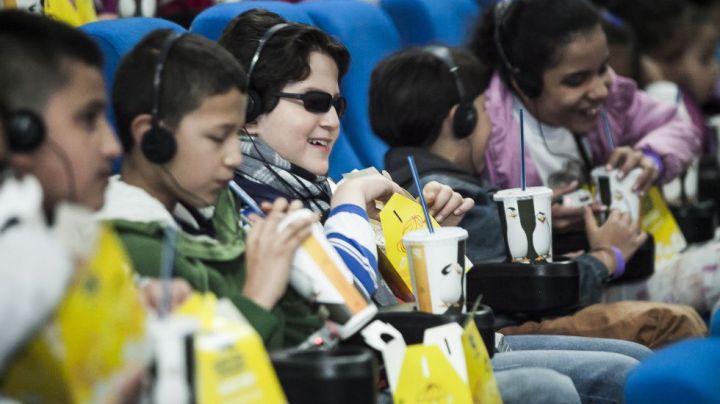‘Cine para todos’ Project Brings Cinema to the Visually Impaired in Colombia

Photo courtesy of Ministerio de las TIC
It’s pretty easy to make films accessible for the hearing impaired: slap a subtitle track on the lower third and throw in some sound effects cues and you can get a reasonably good idea of what’s going on in a film’s narrative. But how in the world would you make films for the blind or visually impaired?
An average moviegoer would likely consider such a proposition absurd, but we easily forget that film is an audiovisual medium. So just as subtitles work around the image without being too visually intrusive, recent developments in audio description techniques have brought evocative visual descriptions to major releases, without necessarily stepping on the dialogues or sound effects.
It turns out the one country breaking new ground in this cutting edge field is none other than Colombia, whose Ministry of Communications has partnered with private foundations to create the project Cine para todos. With 1.2 million visually impaired citizens scattered across the country, Cine para todos has brought monthly screenings with audio description to 10 cities of the republic over the last two years, with a total of 25,000 spectators.
Admittedly, various privately-owned companies have been cracking away at this nascent technology for over a decade, and there is even an app called Whatscine that allows movie patrons to tap in to the audio description track directly from their smartphones. Not one country has taken on this issue on such a massive scale as Colombia.

In the end, though, Cine para todos is not so much about monthly screenings or even 25,000 new spectators having a space to enjoy the cinema. For the Colombian government and the citizens the program has touched, it’s about raising awareness in hopes that some day the visually impaired will live in a slightly more welcoming world.
(via El País)